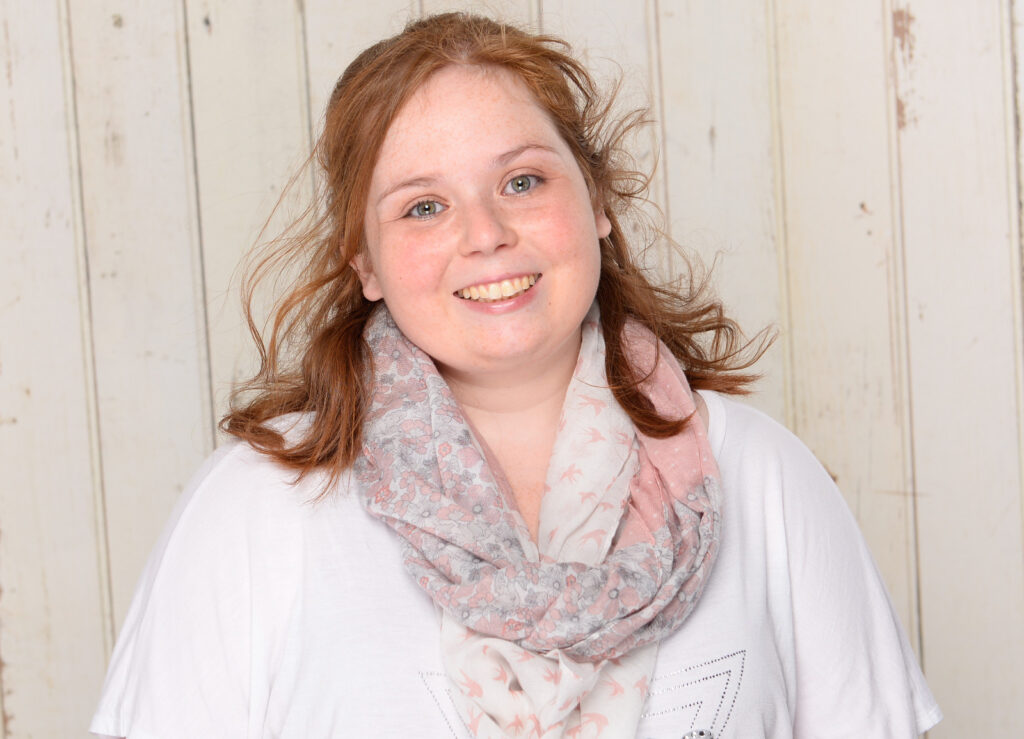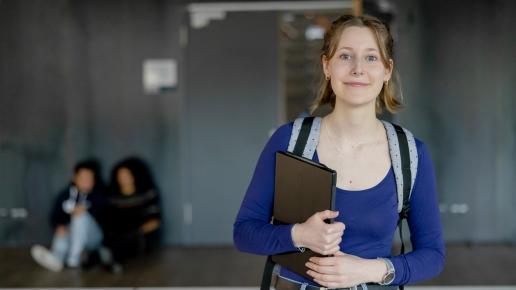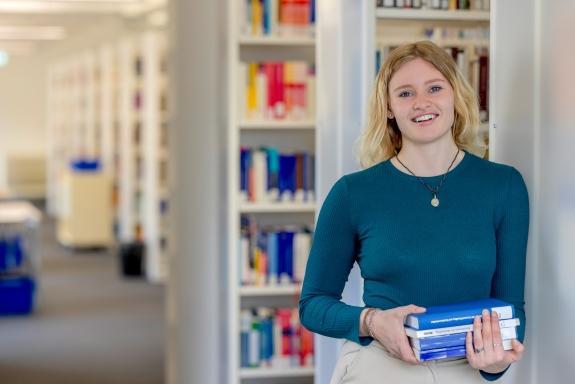Your future begins in Siegen
Would you like to make a meaningful contribution to strengthening opportunities for participation? Are you interested in initiating and implementing social, cultural and institutional change? Then you've come to the right place! The educational science degree program at the intersection of the pedagogical sub-disciplines with reference to psychological and sociological findings provides you with optimal training for the individual support of children, young people and adults. The close link between theory and practice allows you to build up theoretical knowledge and combine it with practical experience, so that you learn how to reduce structural disadvantages and specifically stimulate and support educational and development processes.
Everything at a glance
Career prospects
The course qualifies students for existing and new pedagogical fields of activity in schools and out-of-school settings. Fields of work include the all-day school model, early childhood education, child and youth work, vocational rehabilitation, support for the disadvantaged and care for the elderly. It is also possible to qualify for a Master's degree and pursue an academic career.
Students about the Educational Science program

Interlocking theory and practice
Why should I study this particular course? I considered this question intensively during my research for a suitable degree course. I was already involved in child and youth work in my youth and could imagine following this path professionally. It was important to me not to commit myself to a specific area in the social sector in advance.
What made the Bachelor's degree course in Educational Science: Inclusion and Diversity so special for me was the interlinking of theory and practice. In particular, the opportunity to gain practical experience during my studies and to find out whether the educational career path is suitable for me was particularly appealing. In addition, the experiences in the accompanying courses were reflected on in a theory-based way. This made it clear to me why the theories and topics of the courses are relevant to practical work. The courses on role theory and reflection, for example, proved to be particularly effective for my entry into professional life.
I found the manageable group size of around 40 students per cohort extremely pleasant. By attending courses together, you quickly got to know your fellow students, formed collaborative working groups and were able to make new friends.
Another advantage is the student support. The lecturers are helpful and are always on hand with help and advice if you have any questions or difficulties. The open communication and commitment of the lecturers create an atmosphere of trust, which promotes study and exchange within the study community.
After completing my Bachelor's degree, I decided to continue with a Master's degree in "Education and Social Affairs" at the University of Siegen and was then able to successfully start working as a career guidance counselor.
Overall, I can recommend the course to anyone who is interested in the various facets of education, is open to theory-based reflection on practical experience during their studies and appreciates courses in small groups.
Course content and focus
What you can expect from the Educational Science degree program
Study section I
1st - 3rd semester
Compulsory modules: Element of theory and practice linkage: Students "work and learn" integrated into their studies on two days over a period of three semesters in selected institutions. Approaches to the subject: identity development, learning development, social agency Disciplinary approaches to the field: sociology/politics, psychology, educational science
Study section II
4th - 6th semester
Compulsory modules: Action-related approaches to the field: Pedagogical interventions and design/treatment Social science and pedagogical discourses Law
Bachelor's thesis
During the theory-practice phase, you will work two days a week in selected educational institutions under the guidance of specialists, which will break up traditional study structures.
If you do not have a high school diploma but do have the entrance qualification for universities of applied sciences, please find out more here.
If you do not have an Abitur but are already in the middle of your professional life, please find out more here.
Good reasons for studying educational science at the University of Siegen
- Professional qualification with the job title: educator
- diverse fields of work, including care for the elderly, care for the disabled,
parent and family counselling, child and youth work, cultural education, organizational development, school social work and scientific research - Interdisciplinary courses at the interface between
general education, vocational and business education, psychology, school and social education - semester-accompanying theory-practice phase over three semesters
- optimal learning conditions


